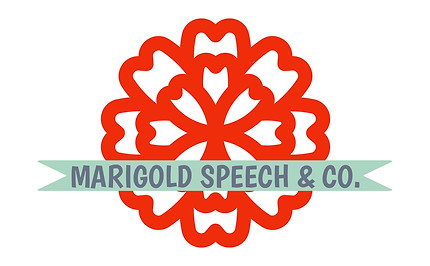I keep choking on food/liquids. What do I do?
- Marigold Speech
- Mar 28, 2025
- 3 min read
By: Emily Fendrick
Understanding Swallowing Problems and How Marigold Speech Can Help
Experiencing the sensation of choking or struggling to swallow food can be both frightening and frustrating. But how do you know if it’s a serious issue? If you or a loved one regularly face difficulties when eating or drinking, it may indicate a condition called dysphagia, which can significantly impact your health and quality of life.
What is Dysphagia?
Dysphagia is the medical term that refers to difficulty swallowing and can present in several ways. Common signs include:
Food or liquid frequently going down the wrong way
Coughing during or after meals
Feeling like food is stuck in your throat or chest
Painful swallowing
A wet or gurgly-sounding voice during meals
Difficulty swallowing pills
Difficulty chewing hard or chewy foods
Unexplained weight loss
According to recent studies, about 1 in 6 American adults experience trouble swallowing (Adkins et al., 2019). If any of these symptoms sound familiar, it’s important to seek professional help, as swallowing issues can lead to serious complications such as choking, aspiration pneumonia, and malnutrition.
When to Seek Help
While it's normal for food to occasionally go down the wrong way, frequent or persistent swallowing problems should not be ignored. If you or a loved one are experiencing any of the issues listed above, it’s important to talk to your doctor about getting a referral for a swallow study. A swallow study, conducted by a speech-language pathologist (SLP), can help determine the underlying causes of swallowing difficulties and guide the appropriate treatment.
How Marigold Speech Can Help
At Marigold Speech Pathology Services, we specialize in diagnosing and treating swallowing difficulties. We offer both in-office outpatient swallow studies and mobile swallow study services for skilled nursing facilities and adult communities throughout Northern Illinois and Southern Wisconsin. Our goal is to provide a comprehensive assessment and clear treatment plan to help you overcome swallowing challenges.
If therapy services are required, we will work with you to develop a personalized therapy plan based on your diagnosis. If therapy is not necessary, we will provide practical strategies to improve your swallowing and reduce your concerns. These strategies may include adjustments to your eating habits, techniques to improve swallowing, or recommendations for safer food textures.
Why Speech Therapists Are Essential for Swallowing Issues
Speech-language pathologists (SLPs) are trained professionals who specialize in the anatomy and physiology of the oral and pharyngeal regions—areas that play a crucial role in both speech and swallowing. Swallowing involves a complex coordination of muscles, strength, and cognitive processes.
When we swallow, food is first chewed and formed into a bolus (a ball-like shape), which is then moved through the throat and into the esophagus. During this process, the airway is temporarily closed off to prevent food from entering the lungs, and the bolus moves toward the stomach. This intricate process requires strong muscle function and proper neural control, which is why issues can arise in individuals with dysphagia.
SLPs are trained to assess and treat these issues, using techniques to help patients improve muscle coordination, strengthen swallowing abilities, and create safer eating strategies. A swallow study from an SLP can provide valuable insight into how your body is handling the swallowing process, and from there, we can tailor a solution that works best for you.
Get the Help You Need Today
If you or a loved one are experiencing swallowing difficulties, don’t wait—schedule a swallow study with Marigold Speech Pathology Services today. Our team is ready to help identify the cause of your swallowing issues and provide effective solutions to improve your eating and drinking experience.
Note: This blog post is intended for informational purposes only and should not be used to diagnose dysphagia or any other medical condition. If you suspect swallowing difficulties, please consult your doctor for a referral to a speech-language pathologist.
Schedule your swallow study with Marigold Speech today!
Contact us if you would like to schedule a swallow study.
A special thanks to my student, Emily Fendrick, from the University of Florida, for authoring this blog post as part of her practicum assignment. Your thoughtful work and insights are greatly appreciated, Emily!

Comments